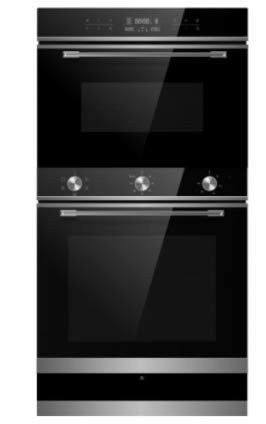Understanding Kitchen Ovens and Hobs: A Comprehensive Guide
The kitchen is frequently referred to as the heart of the home, and for good factor. It is where families come together, meals are prepared, and memories are produced. Central to this cooking haven are 2 vital appliances: the kitchen oven and the hob. Understanding their features, types, and functionalities is essential for effective cooking and can substantially boost a home chef's experience. This short article will look into the world of kitchen ovens and hobs, analyzing their numerous types, benefits, and pointers for making notified choices.
Table of Contents
- Introduction to Kitchen Ovens
- Kinds of Ovens
- Traditional Ovens
- Convection Ovens
- Microwave Ovens
- Steam Ovens
- Comprehending Hobs
- Types of Hobs
- Gas Hobs
- Electric Hobs
- Induction Hobs
- Benefits of Using Ovens and Hobs
- Picking the Right Oven and Hob for Your Kitchen
- Maintenance Tips for Ovens and Hobs
- FAQs
- Conclusion
1. Introduction to Kitchen Ovens
Ovens are important appliances in modern kitchens. They supply a regulated environment for baking, roasting, and broiling food. With various styles and performances, picking the ideal oven can dramatically affect cooking times, food texture, and taste.
2. Types of Ovens
Traditional Ovens
Conventional ovens are the most typical type discovered in homes. They use either electric or gas power to warm the interior and usually feature a single cooking area.
Benefits:
- Versatile for baking, roasting, and broiling.
- Normally cost effective.
Convection Ovens
Stove resemble conventional ovens but come equipped with a fan that distributes hot air throughout the cooking chamber. This leads to even cooking and browning.
Advantages:
- Reduced cooking times due to improved airflow.
- Improved browning and crisping of foods.
Microwave Ovens
Microwave utilize electromagnetic radiation to heat food rapidly, making them convenient for defrosting and reheating leftovers.
Advantages:
- Very quickly cooking times.
- Energy efficient.
Steam Ovens
Steam ovens use steam to prepare, protecting the wetness and nutrients in food. They are particularly popular among health-conscious cooks.
Advantages:
- Healthier cooking option.
- Maintains vitamins and minerals in food.
3. Comprehending Hobs
Hobs, likewise referred to as cooktops, are the flat surface areas on which pots and pans are placed to cook food. They can be integrated into kitchen countertops and are offered in different designs, fuel types, and styles.
4. Kinds of Hobs
Gas Hobs
Gas hobs use burner as their heat source, offering instantaneous heat and accurate temperature control.
Benefits:
- Excellent control over cooking heat.
- Typically less expensive to run than electric ones.
Electric Hobs
Electric hobs heat using electric coils or glass surface areas. They might take longer to warm up than gas, but they supply a smooth cooking surface area and are simpler to clean.
Benefits:
- Even heat circulation.
- Safe, as there's no open flame.
Induction Hobs
Induction hobs use electro-magnetic energy to directly heat pots and pans. Cheapest Fan Oven need suitable pots and pans and offer immediate responsiveness.
Advantages:
- Highly energy-efficient.
- Faster cooking times and accurate temperature control.
5. Benefits of Using Ovens and Hobs
Both ovens and hobs included their own unique set of benefits that can improve any cooking experience. Here are a few key advantages:
- Diverse Cooking Options: Both appliances permit for a variety of cooking techniques including boiling, frying, roasting, baking, and steaming.
- Time Efficiency: Modern ovens and hobs typically feature quick cooking settings, which save time in the kitchen.
- Accuracy Cooking: With sophisticated features, users can achieve better lead to temperature level control and cooking times.
6. Picking the Right Oven and Hob for Your Kitchen
When selecting the best oven and hob, various elements must be considered:
- Size: Ensure that the home appliance fits conveniently in your kitchen space.
- Cooking Style: Consider what types of food you frequently prepare.
- Fuel Type: Whether gas or electric, consider schedule and efficiency in your area.
- Budget: Determine your budget and discover home appliances that fulfill your needs within that variety.
List for Choosing Your Oven and Hob:
- Assess kitchen space.
- Determine your cooking preferences.
- Determine power source availability.
- Compare features and requirements.
- Set a budget variety.
7. Upkeep Tips for Ovens and Hobs
Regular maintenance is essential for keeping ovens and hobs in optimum condition. Here are some upkeep tips:
- Clean Regularly: Wipe down surfaces after each usage and deep clean occasionally.
- Inspect Seals: For ovens, inspect door seals to ensure they are airtight.
- Analyze Burners: For gas hobs, keep burners without food debris to keep effective heating.
- Replace Filters: If your oven has a filter, change it as suggested by the producer.
8. FAQs
1. What is the difference between a traditional oven and a convection oven?Conventional ovens
prepare food through convected heat, while convection ovens circulate hot air, leading to much faster and more even cooking. 2. Do induction hobs need unique cookware?Yes,
induction hobs require ferrous cookware that is capable of being allured to work effectively. 3. Are steam ovens worth the investment?For health-conscious individuals or those who frequently prepare veggies and delicate foods, steam ovens can be worth the financial investment
due to their ability to retain nutrients. 4. Can I combine an oven and hob into one unit?Yes, lots of producers offer combined units referred to as variety cookers, which incorporate both an oven
and hob into a single appliance. 9. Conclusion Kitchen ovens and hobs are important elements of any culinary space, each offering distinct features and performances matched for various cooking styles.
By understanding the
kinds of ovens and hobs readily available, their benefits, and how to preserve them, home chefs can cultivate a more effective and pleasurable cooking experience. Whether one is a skilled cook or a beginner, making informed choices about these vital kitchen home appliances is crucial.

